Related Research Articles
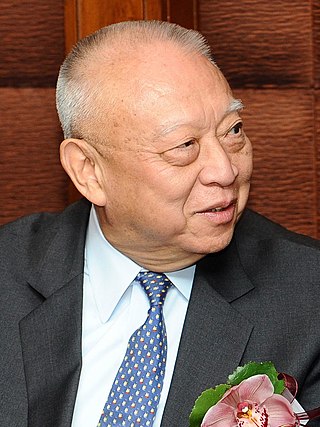
Tung Chee-hwa is a Hong Kong businessman and politician who served as the first Chief Executive of Hong Kong between 1997 and 2005, upon the transfer of sovereignty on 1 July. He served as a vice chairman of the Chinese People's Political Consultative Conference (CPPCC) between 2005 and 2023.

Ta Kung Pao is the oldest active Chinese language newspaper in China. Founded in Tianjin in 1902, the paper is state-owned, controlled by the Liaison Office of the Central Government after the Chinese Civil War. It is widely regarded as a veteran pro-Beijing newspaper. In 2016, it merged with Hong Kong newspaper Wen Wei Po.
Sing Tao Holdings Limited was a Bermuda-incorporated company, but headquartered in Hong Kong. The company was listed in The Stock Exchange of Hong Kong. The company was a media and property conglomerate until it was dismantled in 2002. After selling the main media business and subsequent takeover in mid-2002, the legal person of the listed company, along with its property business, was renamed into Shanghai Ming Yuan Holdings.

Bank of Communications Limited (BoComm), is the fifth-largest bank in mainland China.

Rita Fan Hsu Lai-tai is a senior Hong Kong politician. She was the first President of the Hong Kong SAR Legislative Council from 1998 to 2008 and a member of the Standing Committee of the National People's Congress (NPCSC).
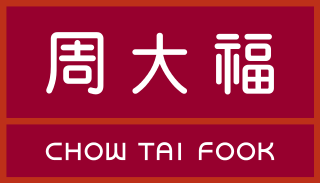
Chow Tai Fook group is a Hong Kong–based, privately-owned conglomerate with holdings in the jewellery, property development, hotel, department store, transportation, energy, telecommunications, port, casino, and other businesses. Despite the holding companies of the group, namely Chow Tai Fook Capital Limited, Chow Tai Fook (Holding) Limited, Chow Tai Fook Enterprises Limited, etc. being privately owned, the group has been partially listed on the stock market via associate company New World Development and subsidiary Chow Tai Fook Jewellery Group Limited. As of 31 December 2018, New World Development was ranked as the 47th-largest company by market capitalization on the Stock Exchange of Hong Kong, which was HK$105.68061 billion.
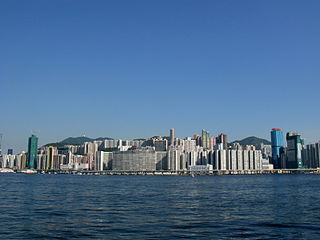
Shanghainese people in Hong Kong have played an important role in the region, despite being a relatively small portion of the Han Chinese population. "Shanghainese" is a term that refers to both the Wu Chinese language and the Han Chinese subgroups from the city of Shanghai and the peoples of the Jiangnan region in Hong Kong more broadly, particularly those with ancestral homes in parts of southern Jiangsu (Kiangsu), northern Zhejiang (Chekiang) and Anhui provinces.
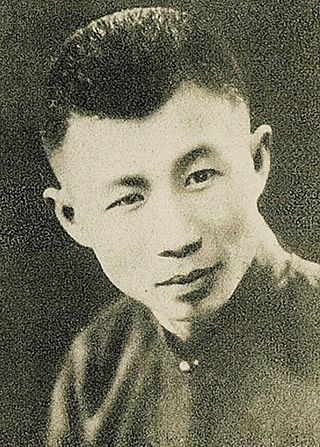
Runje Shaw (1896–1975), also known as Shao Zuiweng and Shao Renjie, was a Chinese film entrepreneur, producer and director. The eldest of the Shaw brothers, in 1925 he founded Tianyi Film Company in Shanghai, which became one of the top three film production companies in pre-WWII Republic of China, and the beginning of the Shaw Brothers media empire.
Tang Yuhan, or Hans Tang was a Hong Kong-Chinese oncologist and businessman. He founded the Sino-Belgium Cancer Hospital of Radiation Therapy in Shanghai and served as president of the Hong Kong Chinese Medical Association (香港中華醫學會) and the founder of Tang Fund (湯氏基金).
David Shou-Yeh Wong is a Hong Kong billionaire banker and philanthropist.
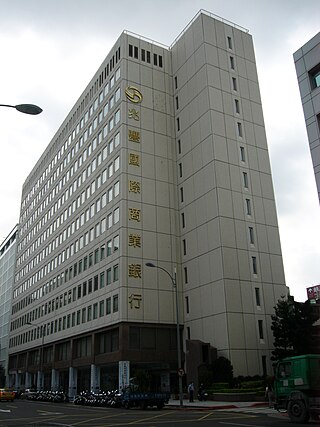
The Mega International Commercial Bank is the second largest bank in Taiwan by tier 1 capital and a subsidiary of Mega Financial Holding Company. It has 108 branches in Taiwan and 39 overseas units. The bank is the sole domestic US dollar/Euro settlement bank designated by the Bankers Association.
The four big families of Hong Kong is a term used to describe the four business families who historically rose to prominence and became influential in Hong Kong. In order of influence, they are Li, Ho, Lo and Hui family.
Orient Overseas (International) Limited (OOIL) is a Hong Kong, China based investment holding company involved in international transportation and logistics, and property investment and property development. It is the parent company of Orient Overseas Container Line (OOCL), one of the world's largest container shipping companies.
Japanese people in China are Japanese expatriates and emigrants and their descendants residing in Greater China. In October 2018, there were 171,763 Japanese nationals living in the People's Republic of China, and 24,280 Japanese nationals living in the Republic of China (Taiwan).

Lianhua Supermarket Holdings Co., Ltd. is a Chinese supermarket company that is a subsidiary of the Bailian Group. The company has offices in Shanghai and Hong Kong.
Joseph Hsu King-shing also transliterated as Hsu King-Seng was a Chinese professional football player and manager. Born in Shanghai, Hsu moved to Hong Kong to continue his professional career and never returned to the mainland China to play nor coach. He coached both Hong Kong and Republic of China (Taiwan), as well as managed Singtao for more than a decade.

The paper money of the Qing dynasty was periodically used alongside a bimetallic coinage system of copper-alloy cash coins and silver sycees; paper money was used during different periods of Chinese history under the Qing dynasty, having acquired experiences from the prior Song, Jin, Yuan, and Ming dynasties which adopted paper money but where uncontrolled printing led to hyperinflation. During the youngest days of the Qing dynasty paper money was used but this was quickly abolished as the government sought not to repeat history for a fourth time; however, under the reign of the Xianfeng Emperor, due to several large wars and rebellions, the Qing government was forced to issue paper money again.

The Ta-Ching Government Bank, known as the Ta-Ching Bank of the Ministry of Revenue (大清戶部銀行) from 1905 to 1908, was the name of the Bank of China as a government agency of the Qing dynasty until the empire's dissolution in 1912. It was originally created to serve as the central bank of China in 1905, originally as a division of the Ministry of Revenue, and would serve as the country's de facto central bank until the establishment of the Central Bank of China in 1924.

The banknotes of the Ta-Ching Government Bank, known as the banknotes of the Ta-Ching Bank of the Ministry of Revenue from 1905 to 1908, were intended to become the main form of paper money in the Qing currency system. These banknotes were issued by the Ta-Ching Government Bank, a national bank established to serve as the central bank of the Qing dynasty. The Ta-Ching Government Bank had branches throughout China and many of its branches outside of its headquarters in Beijing also issued banknotes.
References
- ↑ "宁波帮庄市籍人士(部分)——徐大統". Archived from the original on 2008-05-14. Retrieved 2008-06-01.